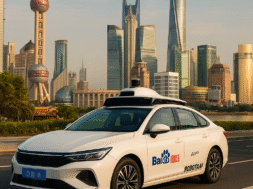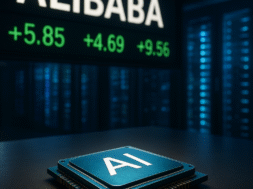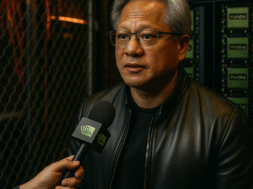
Alibaba Unveils $660 AI Glasses to Challenge Meta and Launches Its Own ChatGPT Rival
Alibaba has officially entered the smart wearable race with the launch of its Quark AI Glasses and a new ChatGPT-style chatbot, signaling its strongest consumer-focused AI push yet.
The tech giant announced that pre-orders for the Quark AI Glasses will begin on October 24 via Tmall, its flagship e-commerce platform. The initial pre-sale price is set at 4,699 yuan (around $660), but after discounts, consumers can grab them for 3,999 yuan. Shipments are scheduled to start in December 2025.
️ Alibaba’s Leap Into Smart Wearables
First introduced in July, the Quark AI Glasses mark Alibaba’s debut in the AI-powered eyewear market. Built on its proprietary Qwen large language model (LLM) and Quark AI assistant, the glasses provide advanced capabilities like:
-
Hands-free calls and voice control
-
Music streaming
-
Real-time translation in multiple languages
-
AI-based task assistance
Industry analysts view this move as Alibaba’s strategic response to Meta’s Ray-Ban smart glasses, blending AI intelligence with everyday utility.
The glasses also put Alibaba in direct competition with Xiaomi, which launched its own version of AI glasses earlier this year, reinforcing the growing rivalry in China’s consumer tech innovation space.
Meet Alibaba’s ChatGPT Challenger
Alongside the glasses, Alibaba also introduced AI Chat Assistant, a new feature within its Quark app powered by the latest Qwen3 AI models.
The chatbot offers users a seamless conversational experience through text or voice, merging AI search and chat into one interface. Key functions include:
-
Photo editing and AI writing assistance
-
Problem-solving through image input
-
Integrated AI knowledge and conversation tools
With this release, Alibaba aims to rival leading AI platforms like ChatGPT and DeepSeek, while expanding its AI ecosystem beyond enterprise solutions to directly serve consumers.
A Bold AI Expansion Strategy
The launch reflects Alibaba’s wider AI growth strategy for 2025, which includes major investments in cloud computing, AI infrastructure, and consumer innovation. The company has been aggressively rolling out improved models and tools to maintain its competitive edge.
Following the announcements, Alibaba’s Hong Kong-listed shares rose 1.7%, while its U.S.-listed stock also saw gains in premarket trading—signaling investor confidence in the company’s new AI direction.













